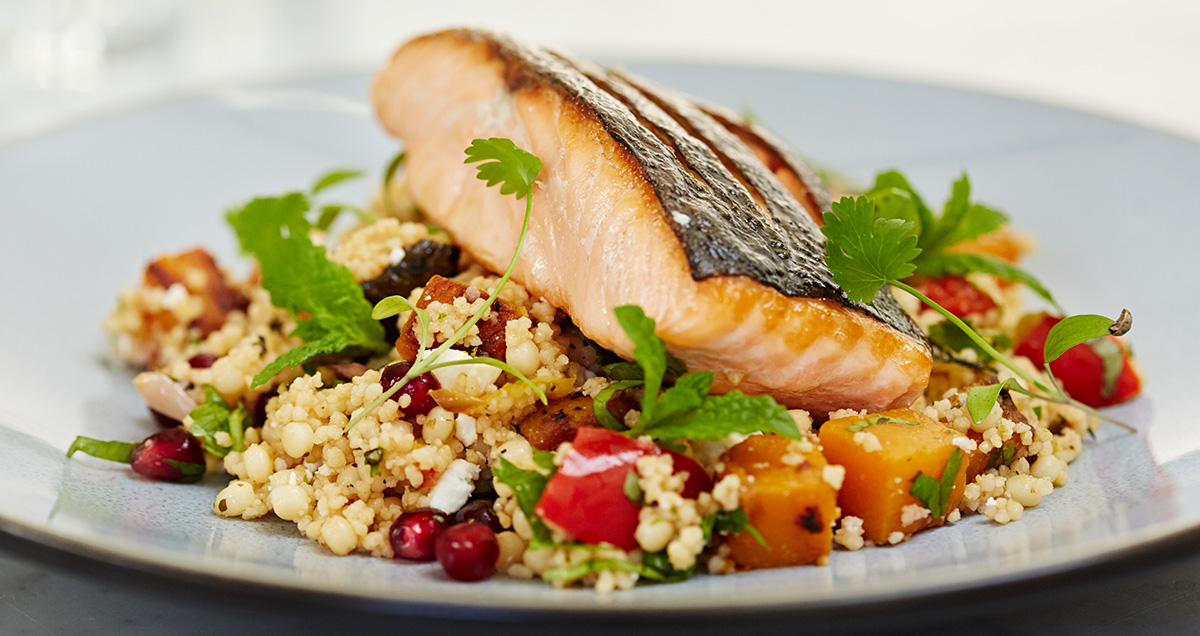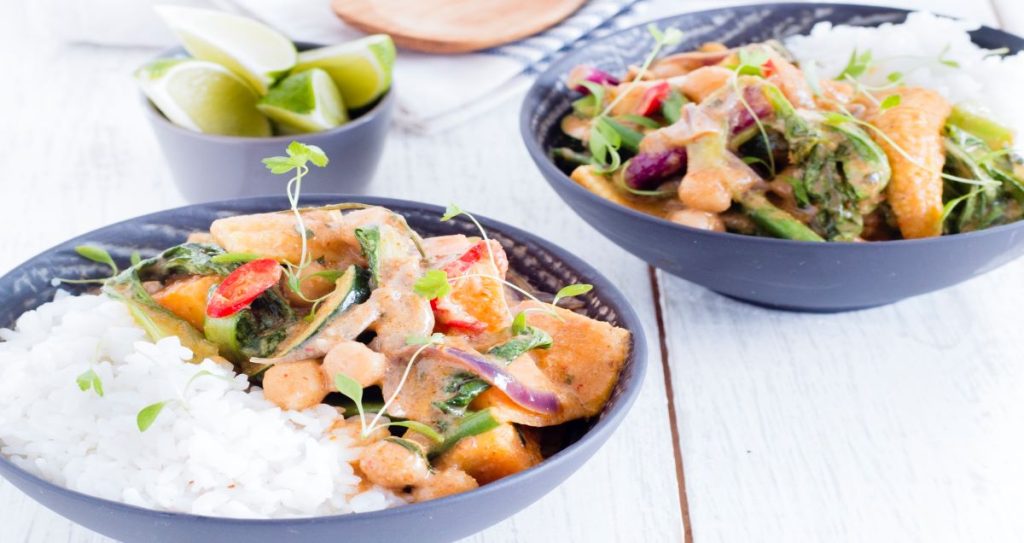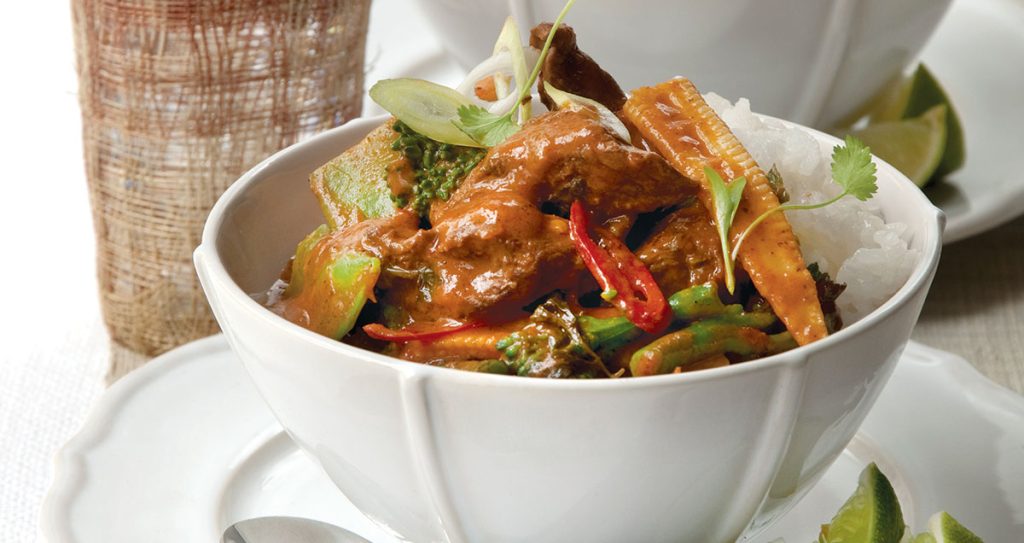, Step by step
Couscous with butternut squash and harissa-crusted salmon

A quick, nutritious spiced salmon and couscous dish that's perfect for a midweek meal.
Method
-
Step 1
Coat the salmon fillets in harissa paste and olive oil and leave for 2 hours in the fridge to marinate in a sealed container.
-
Step 2
Place the stock cube into the boiling water to infuse. Then add to the couscous in a large bowl and cover with a plate for the water to be absorbed, approximately 5 minutes.
-
Step 3
Remove the plate and leave the couscous to cool. When cool add the roasted diced squash and pepper, chopped mint and parsley and season with salt and pepper to taste.
-
Step 4
Now add the pomegranate seeds, lemon zest and juice with the crumbled feta cheese, mix and leave to one side.
-
Step 5
Take the salmon out of the fridge and heat a non-stick pan with a little olive oil. Sauté the salmon in the pan evenly on all sides until cooked to your liking. When cooked leave in the pan with the heat off.
-
Step 6
Place the couscous onto the plates and lift the salmon from the pan and onto this.
-
Step 7
Serve with picked mint or coriander.
-
Step 8
The squash and pepper can be substituted for any roasted vegetables to make the couscous salad.
Nutrition
This month’s recipe shows us an easy way to make salmon a bit more interesting and ensure that you get some lovely different coloured vegetables in your meal.
Salmon is classified as an oily fish and the government recommends that at least two portions of fish should be eaten each week as part of a healthy balanced diet each, with one as oily fish like salmon. A portion is normally considered to be 140g cooked weight.
Salmon, like other oily fish, including trout, sardines, mackerel, and herring, contain important long-chain omega-3 fatty acids which contribute to heart and brain health. All oily fish are also rich in vitamin D, which is needed for bone and muscular health.
Both the butternut squash and red pepper in this recipe are rich in carotenoids, which are converted to vitamin A in the body, contributing to immune health. Red pepper is especially rich in vitamin C although some of this is lost when it is cooked, and the squash also provides vitamin C. The phytochemicals – substances which give the lovely bright colours to these vegetables – also have positive health benefits.
One portion of Mark’s delicious dish provides one of your 5 A Day and you can always add an extra portion of vegetables or salad to eat alongside it.
DR JULIET GREY, COMPANY NUTRITIONIST


